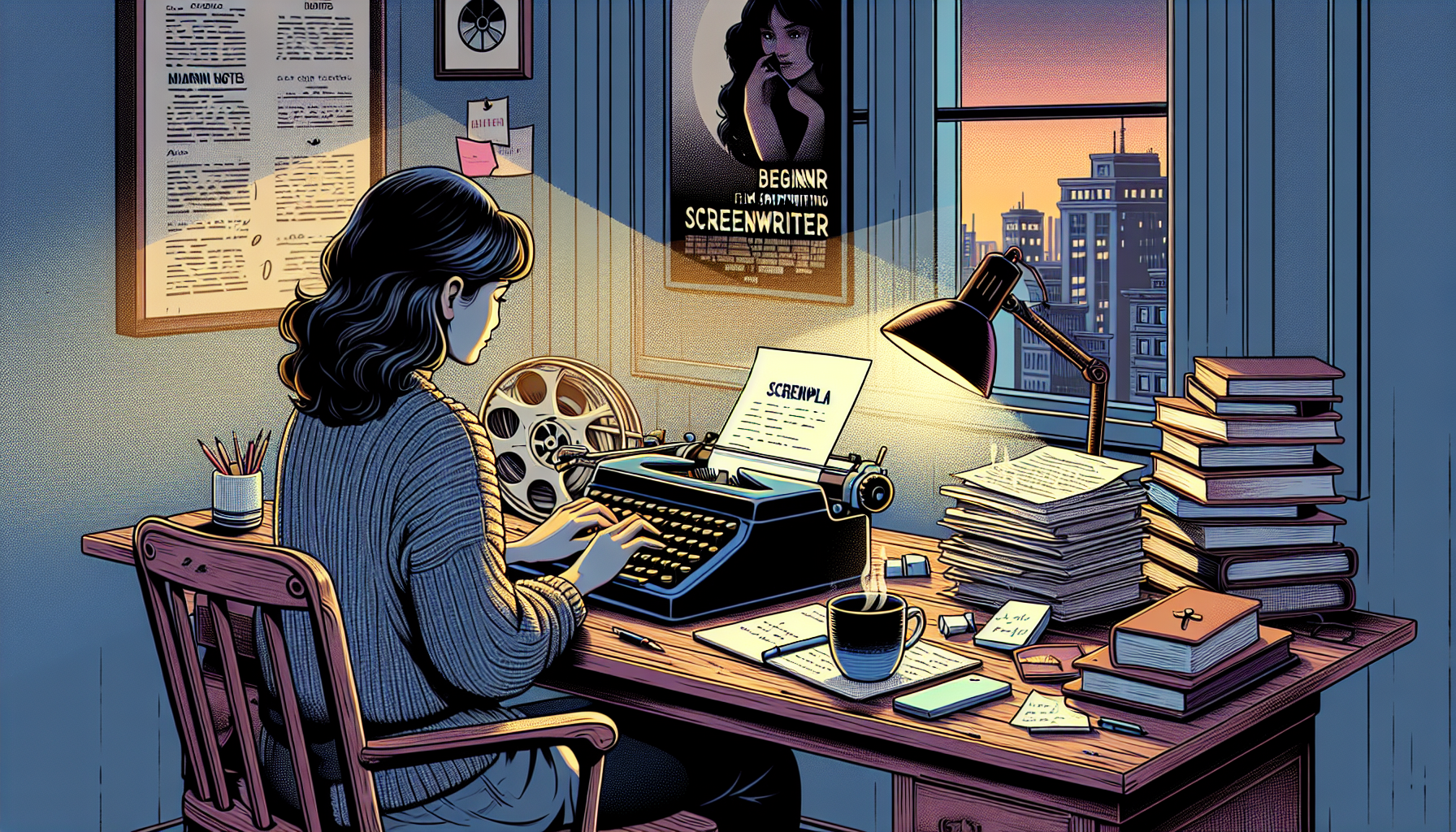
Welcome to the World of Screenwriting: Surviving Your First Script
Ah, the noble pursuit of screenwriting! It’s like deciding to become a magician, but instead of pulling rabbits out of hats, you’re yanking heartstrings and eliciting gasps with nothing but words and the magic of potential cinema. Congratulations, you brave soul, on choosing this path. Whether inspired by a late-night epiphany or a lifelong dream, embarking on the journey of screenwriting is as thrilling as it is daunting. But fear not! Here’s a starter kit for your adventure in the world of screenwriting, packed with wit, wisdom, and a sprinkle of “what the heck am I doing?”
The Toolbox: Scriptwriting Software and Caffeine
Choosing Your Wand: The Right Software
First things first, you need a wand—err, scriptwriting software. This isn’t the dark ages, so let’s leave the quill and parchment for another day. In the 21st century, we have software like Final Draft, Celtx, and WriterDuet. These magical tools ensure that your format won’t get you laughed out of a producer’s office. They auto-magically handle the margins, spacing, and structure, so you can focus on weaving narratives instead of spacing dialogue.
Scriptwriting Fuel: Copious Amounts of Caffeine
Next, you’ll need your elixir of life—caffeine. Coffee, tea, or an IV drip, choose your potion. It’ll be your companion during those early mornings or late nights when inspiration strikes or procrastination hits hard. Remember, the key ingredient to any successful screenwriting session is a well-hydrated and caffeinated brain.
The Blueprint: Structure is Your Best Friend
Imagine building a castle without a blueprint. That’s what writing a screenplay without an understanding of structure is like. You might end up with a beautiful door to nowhere or a moat without water. A solid structure is the skeleton of your story; everything else is flesh and decoration. Familiarize yourself with the three-act structure, the hero’s journey, or any other narrative scaffolding that resonates with you. Your future self will thank you for not plunging headfirst into a pit of plot holes.
Dialogue: Crafting Conversations, Not Monologues
Great, so you’ve mastered structure. Now, let’s talk about making your characters sound like actual people rather than robots programmed with a thesaurus. Dialogue in screenplays is an art form. It should be snappy, laden with subtext, and reveal character while pushing the story forward. A helpful exercise is to eavesdrop on real conversations (discreetly, please) or watch your favorite movies and study how dialogue flows. Spoiler alert: Nobody speaks in perfect sentences, and um, uh, and well are more common than you’d think.
Characters: The Beating Heart(s) of Your Story
Characters are the lifeblood of your screenplay. They are the vessels through which your audience connects with your story. Therefore, creating multi-dimensional, flawed, and relatable characters is paramount. Invest time in crafting backstories, understanding their desires, needs, and fears, even if these details never see the light of day. This depth will inform their decisions and make them resonate with your audience. Imagine them as your friends (or enemies) — complex, unpredictable, and fascinating. You’re not just creating characters; you’re birthing souls into your cinematic universe.
Feedback: The Gift That Keeps on Giving (and Hurting)
Lastly, feedback is the spinach to your Popeye—it makes your screenplay strong. Yes, it may be painful to have your baby critiqued and dismantled by others, but it’s essential. Seek out trusted peers, join screenwriting groups, or brave the cold embrace of the internet for feedback. Just remember, not all feedback is created equal. Learn to filter advice through the lens of your vision for the story. But do listen, adapt, and evolve.
Mastering the art of screenwriting is a journey fraught with challenges, late-night caffeine binges, moments of doubt, and exhilarating breakthroughs. It requires a cocktail of creativity, discipline, resilience, and a dash of madness. But fear not, for the rewards—seeing your story come to life, moving audiences, or simply knowing you’ve crafted something unique—are worth the rollercoaster ride. So, go forth, wield your newfound knowledge with wisdom and wit, and remember: in screenwriting, as in life, the best stories are born from passion, persistence, and a touch of the unpredictable.






